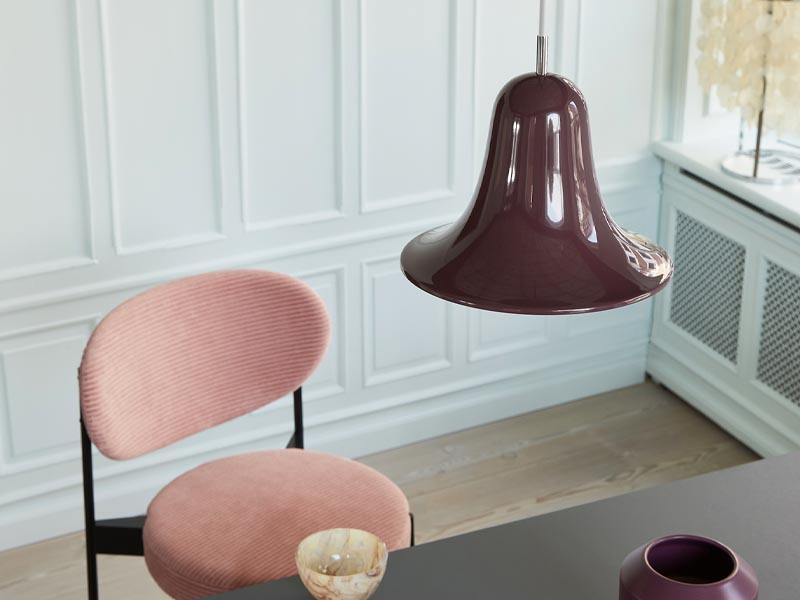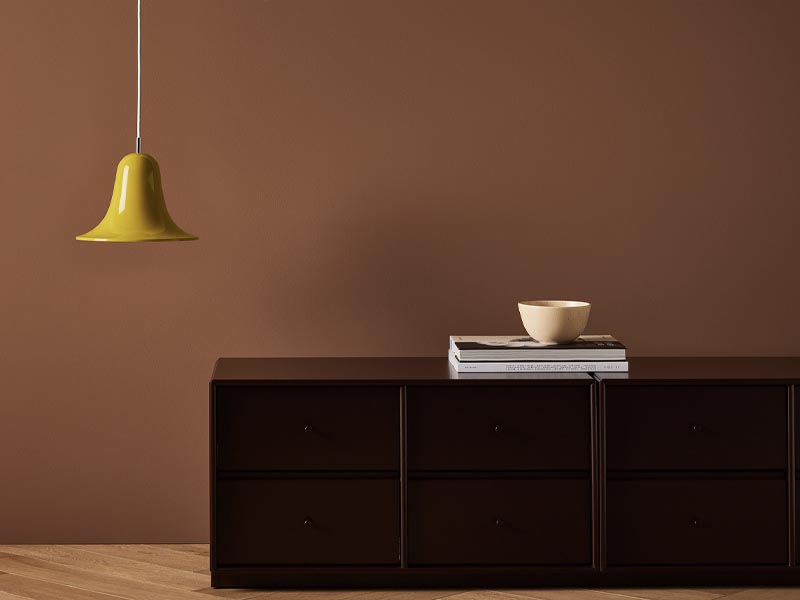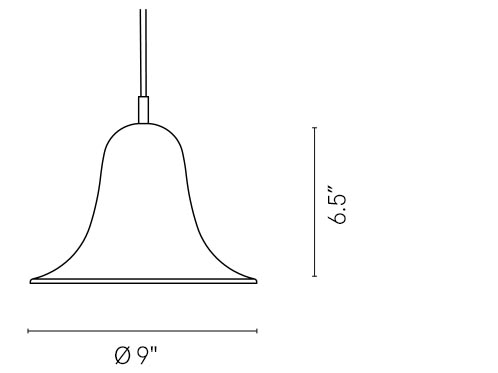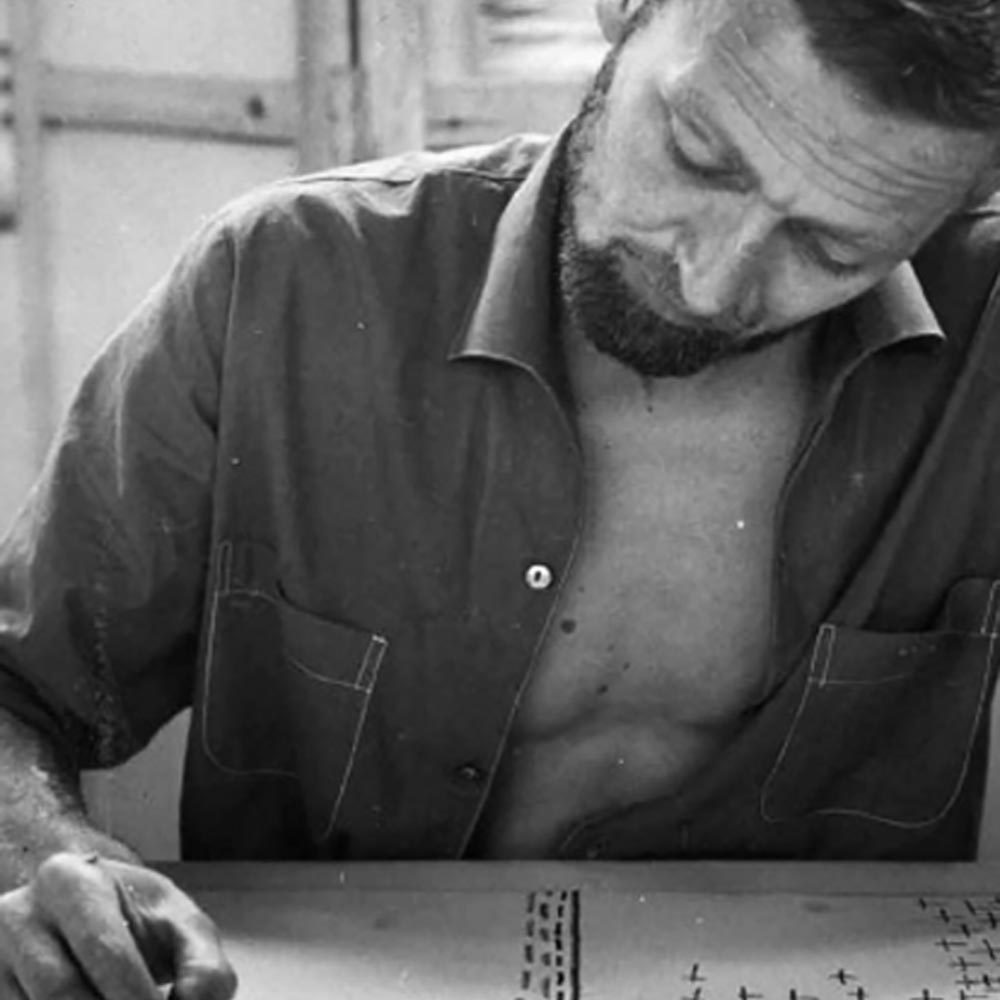Overview
As an official licensee of Verner Panton Design AG, the exclusive owner of all Verner Panton designs, Verpan offers a carefully curated selection of Verner Panton’s timeless designs. Verpan's collections include iconic furniture and lighting pieces that offer extraordinary user experiences and facilitate new ways of living, working and interacting.Iconic design with a great story
PANTOP Pendant Lamp, Burgundy, by Verner Panton
- Iconic Panton design
- Shade made of metal, canopy made of PVC (white)
- Ø 9”, Cord L 98”
- White fabric cord
- 1 x E12 LED bulb, 110V
- Hardwired (installation required)
- Made in China




Specifications
- BULB AND SOCKET
- 1 LED Bulb, E12
- MAXIMUM WATTAGE
- 25W
- Voltage
- 110V
- POWER SOURCE
- Hardwired (installation required)
- Weight
- 2.8 lbs
- SHIPPING DIMENSIONS
- 1 Box 12.2"x11.4"x10.2”
-

- DIMENSIONS
- H 6.5" ⌀ 9" Cord L 98"
-

- Proposition 65 Warning
-
Designer

Verner Panton (1926–1998) is the ‘enfant terrible’ of Danish furniture design. Characterized by Poul Henningsen as “stubborn and forever young” Panton used his imagination and enthusiasm to combine high-tech materials, playful shapes and an array of bold colours, until an entirely new and different idiom emerged. After graduating from the Royal Academy in Copenhagen in 1951, he worked briefly at Arne Jacobsen’s architectural office, before setting off in his Volkswagen van in a bid to explore Europe and at the same time find possible investors. He returned to Denmark, not with contracts, but full of ideas, and soon after landed his first major job — designing the interior of the Komigen (Comeagain) Inn. This resulted in “the Cone Chair”, which was placed in an all-red setting, causing a sensation.

 @DESIGNQUARTERS
@DESIGNQUARTERS